
My Opinion | Aug 19,2023
Before Addis Abeba woke up on a morning two weeks ago, one of the capital’s largest bus terminals, Autobus Tera, was already bustling. Starting from 5:00am, the terminal located on Fit. Habte Giorgis Street was hectic and lively.
People were walking around with luggage and plastic bags packed with their personal belongings. Vendors were selling different items to passersby, and bus coordinators were running around calling for passengers. This typical scene bore witness to the fact that the terminal is one of the busiest and largest in the city.
The 56-year-old Alemayehu Abera, a transport dispatch director for Alem Level One Higher Cross Country Bus Private Owners Association, was one of those stuck in the hustle and bustle. Seemingly impervious to the earliness of the hour or the bitter cold, Alemayehu has been working in this terminal for the past 17 years.
“We have more loads of work this week,” said Alemayehu, whose Association was requested by the Addis Abeba City Administration to rent out 80 of their buses to support Sheger Bus. “My phone rings every 10 to 15 minutes."
The buzzing phone forwards the calls of confused bus drivers and owners alike asking different questions including where to pick up passengers, often perplexed about the new business they have jumped into.
Recently, Addis Abeba City Administration rented 479 cross-country buses from private owners at the cost of 63 million Br to relieve the public transportation shortage in the city. The buses have all been assigned to operate under Sheger Mass Transportation Service Provider Enterprise. However, Anbessa City Bus Service Enterprise was also expecting to add several buses to its fleet.
The decision to rent these buses came from the Cabinet after it was certain about the delay in the purchase of 3,000 locally assembled public buses, according to Aregawi Maru, communications director at Addis Abeba Transport Bureau.
Transportation is one of the major challenges of the city, which has a total of 16,118 vehicles registered to provide public transport services. However, only 64pc of them are currently operational and serving the 2.7 million residents in the capital.
The cabinet approved of the initiative after conducting a two-week study of a similar experience of contracting 200 cross-country buses, half voluntarily and half with the transport bureau tariff, to serve the community two months ago, according to Aregawi.
"The buses must cover 70Km every day," said Aregawi.
The City Administration has also announced that it will allocate 121 million Br annually toward subsidising the transportation sector.
The Administration had initially planned to rent 560 buses, but owners of 81 buses have either declined to participate or failed to sign the agreement of service, which will be in effect through to April 19, 2021.
Although the buses are supposed to be assigned to Sheger and Anbessa Enterprises in a 70/30 ratio, respectively, nothing has yet materialised for Anbessa to manage and operate, according to Firew Semaw, deputy director for Anbessa Bus Enterprise.
Samuel Fisseha, communications officer at Sheger Mass Transport Service Provider Enterprise, claims that all 479 buses will be under Sheger's control and that they have already hired and given orientation to 854 ticket service coordinators as of October 23.
He also added that Sheger has opened a fourth depot to accommodate the new buses and that it has increased the number of operational routes from 49 to 60.
"To minimise heavy transport queues, which have become common everywhere, the buses from the associations will begin working in coordination with our buses immediately after they complete their pilot test and free service," he said.
He noted that most new routes are between busy city centres and condominiums.
The buses began a pilot testing period on October 19, serving customers free of charge. The pilot period was only intended to last for a week, but the buses are still not charging passengers as of October 30.
"We were expecting such challenges," he said, "but the ticket service coordinators that we trained haven't come yet, and we're calling them using media. We will train another team if they refuse to come."
The buses being rented vary in rating from level-one to level-three, categorised based on seating capacities that range from 45 to 65 passengers. Current working hours for these buses are Monday to Saturday from 6:00am to 8:30pm.
The City Administration will reportedly pay 3,980 Br daily to each level-one bus and 6,500 Br to level-3 buses. Payments will be made through their respective transportation associations. Payments will be effected on the final day of each month, with the Administration reserving the right to delay payment for seven days, according to the contract between the two parties. Bus owners will cover all the costs related to driver salaries, maintenance and fuel.
The Administration approached the transportation associations after studying the transportation problems, according to Berke Takel, communications officer at the City Administration.
Following receipt of the request letter, the associations began deliberations on how best to proceed with meeting the vehicle quotas specified by the Administration. Association fleet sizes vary, and they agreed to merge to fulfill the bus quotas expected from each member association.
Only one association, Zemen, was able to fulfill its 40 bus quota without resorting to a merger. Elshadaye, Fiker, Alem, Hidase, Abay, Habesha, Andinet and Hibert merged to contribute a total of just under 400 buses to the Administration. Three other associations joined late and contributed 52 buses, which began giving service on October 23, still leaving the Administration short of its intended 560 bus target.
There is no deadline for the remaining buses to sign the agreement, and there is no way to compel the 81 remaining buses to sign, according to Habtamu Nigussei, a publication expert at the City Transport Bureau.
Guta Shebru, the owner of two cross-country buses and a member of the Elshadaye Association, is using one of his buses to take part in the new programme. He became a member of the association after he bought his first bus six years ago, and he is still working as a conductor in one of his buses.
"This is the only source of income for my family and me," Guta said.
Guta used to live in Shashamane, working as a daily labourer. Through time, hard work and participating in equb[a traditional means of saving], he managed to buy a bus and start a career in transportation services. A few years later, he doubled his number of cross-country buses. Guta moved to the capital with his wife and six children a year ago after his family faced issues because of political instability in Shashamane.
One of his buses is giving service after being assigned to a line between Gurara and Autobus Tera. Guta is eager to see how the new venture will turn out, however, he is discontented with the daily 40 Br fee for the privilege of parking his bus at stations like Autobus Tera since Sheger does not have depots for parking.
It is also beneficial for bus owners to have their buses working in the capital, because it will be more productive and generate better income than the previous cross-country work, according to Belete Ademase, director for Elshadaye Level-One Cross-Country Buses Association.
Tesfaye Degfu, an electrician engaged in maintaining stoves and various electrical equipment at his small office in Lideta, is one of the new beneficiaries of public transportation initiatives. He usually leaves his house at 6:00am since he faces transport problems even if he is late by a few minutes.
When Fortunemet him two weeks ago, it was his third day using one of these free buses to travel. He was concerned about high ticket prices for these buses after they complete their pilot period.
However, not everyone is pleased with the new initiative.
"I think what the City Administration and Transport Bureau are doing is something that has not been studied well. It feels like it's rushed work," said a member of one of the associations who wished to remain anonymous.
Engida Tadie, a lecturer at Kotebe Metropolitan University who conducts urban transportation research, says that the government must work on discouraging private and small transport providers and invite the wealthy to participate in mass transportation.
"The initiatives like this one will fail to produce a national solution to the problem," said Engida.
What the City Administration is doing to solve the transportation problem helps only in the city, according to Engida, who says that universities will be opening throughout the country and expecting the students to attend.
"In this time there is a high demand for these cross-country buses generally," he said.
PUBLISHED ON
Oct 31,2020 [ VOL
21 , NO
1070]

My Opinion | Aug 19,2023

Commentaries | Sep 10,2021

Sunday with Eden | Feb 29,2020
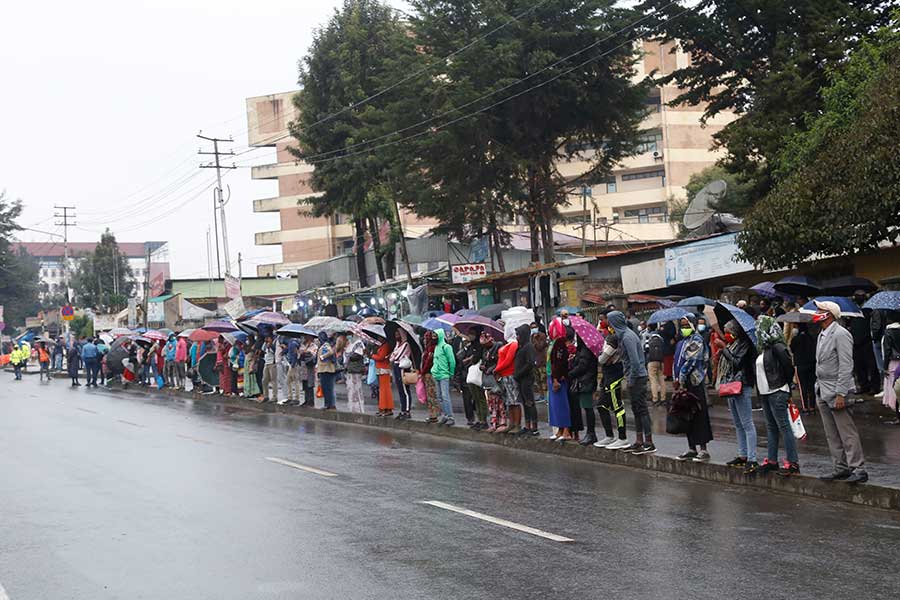
Featured | Sep 06,2020
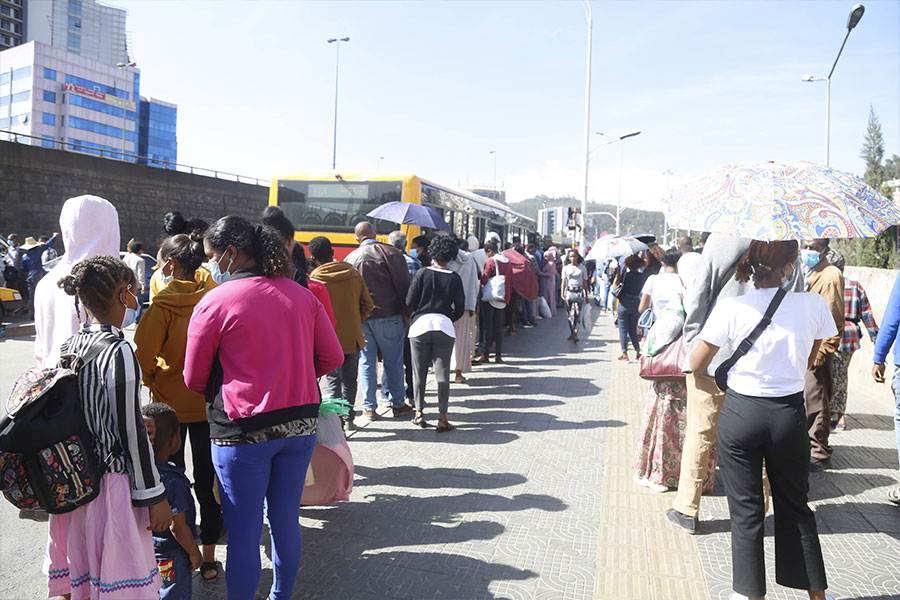
Agenda | Feb 05,2022
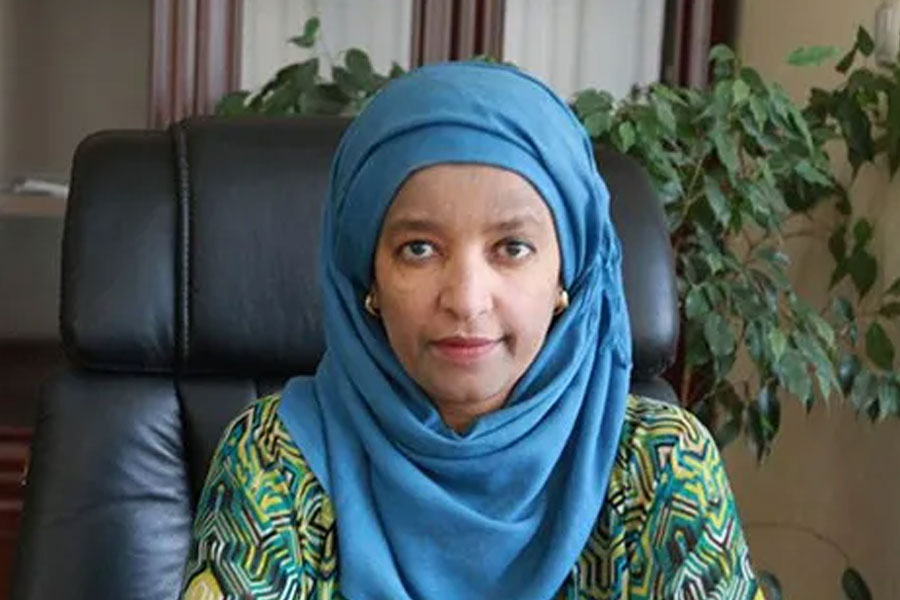
Radar | Dec 17,2022
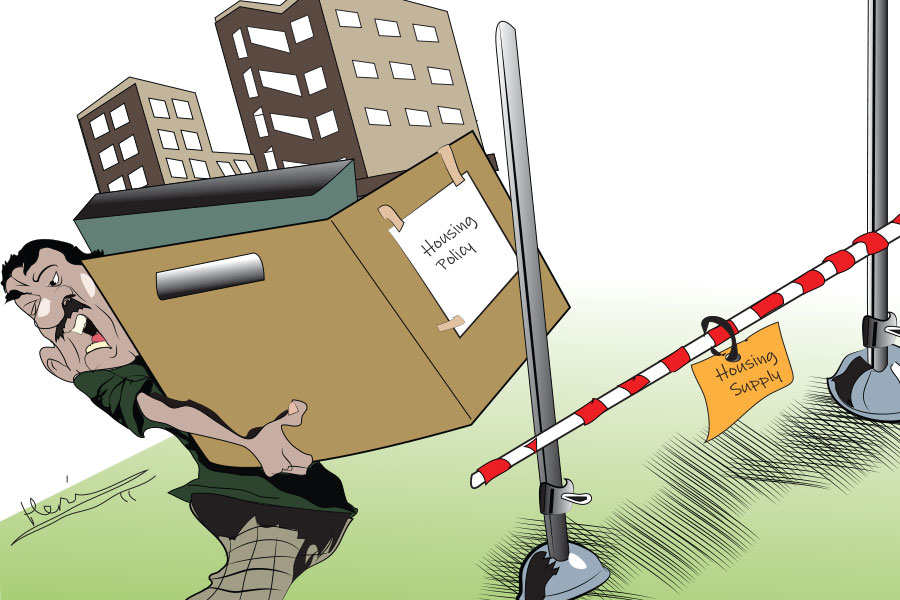
Editorial | May 04,2019

Films Review | Apr 30,2021
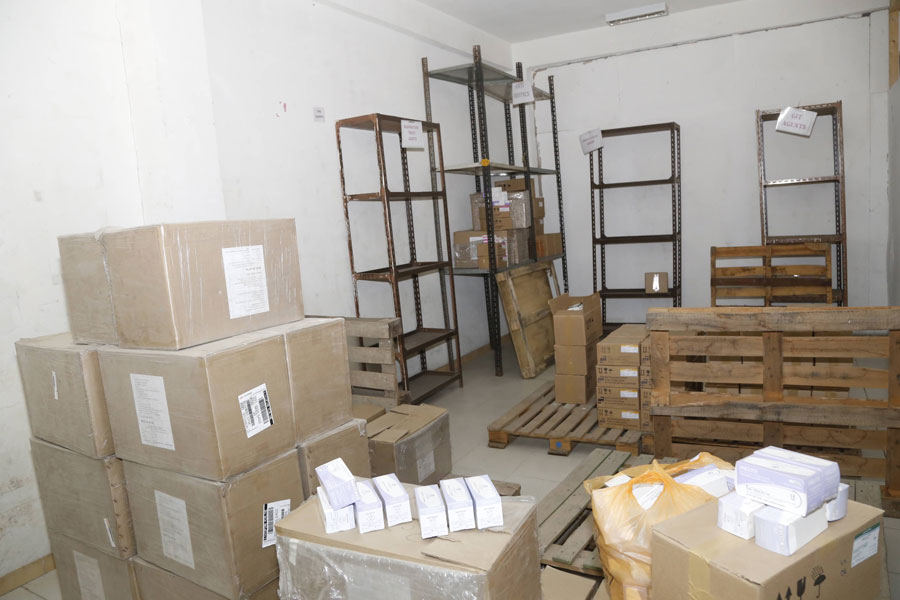
Agenda | Apr 10,2021

Agenda | Mar 04,2023

Dec 22 , 2024 . By TIZITA SHEWAFERAW
Charged with transforming colossal state-owned enterprises into modern and competitiv...

Aug 18 , 2024 . By AKSAH ITALO
Although predictable Yonas Zerihun's job in the ride-hailing service is not immune to...

Jul 28 , 2024 . By TIZITA SHEWAFERAW
Unhabitual, perhaps too many, Samuel Gebreyohannes, 38, used to occasionally enjoy a couple of beers at breakfast. However, he recently swit...

Jul 13 , 2024 . By AKSAH ITALO
Investors who rely on tractors, trucks, and field vehicles for commuting, transporting commodities, and f...

Jul 5 , 2025
Six years ago, Ethiopia was the darling of international liberal commentators. A year...

Jun 28 , 2025
Meseret Damtie, the assertive auditor general, has never been shy about naming names...

Jun 21 , 2025
A well-worn adage says, “Budget is not destiny, but it is direction.” Examining t...

Jun 14 , 2025
Yet again, the Horn of Africa is bracing for trouble. A region already frayed by wars...